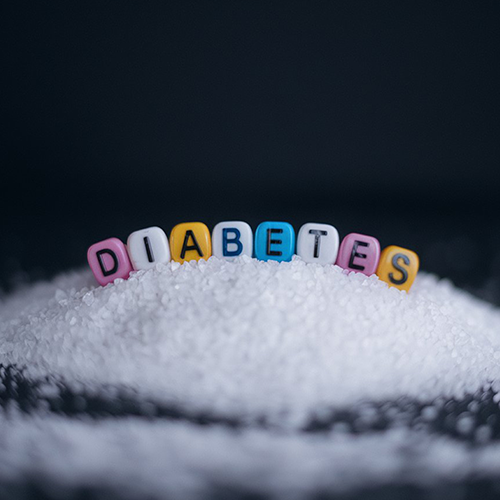The Importance of Diabetes Screening and Regular Checkups

Umm… diabetes. The word itself makes many of us pause, right? It’s one of those conditions that creeps into conversations at family gatherings, health camps, or even small talk with neighbors. But here’s the thing: while everyone seems to know about it, not everyone takes diabetes screening seriously. And ahh, that’s exactly where the problem begins.
Diabetes screening is not just about checking your sugar once in a while. It is a bigger picture than that. It has alot of things in it. Like prevention, early detection and keeping complications on hold before they rule over your life.Hmm, just think of it like this: as you wouldn’t wait for your car engine to collapse before going for a service, your body too needs regular checkups to prevent breakdowns.
Table of Content:
- What Exactly is Diabetes Screening?
- Why is Diabetes Screening Crucial for Women?
- The Silent Dangers of Undiagnosed Diabetes
- How Often Should You Go for Screening?
- The Role of Lifestyle in Managing Diabetes
- Why Regular Checkups Matter Beyond Screening
Technology Makes Screening Easier
- Final Thoughts
What Exactly is Diabetes Screening?
Let’s make it more simple. Diabetes screening is a set of tests designed to check how your body is handling sugar (glucose). Sugar gives us energy, yes, but too much of it floating around in your blood for a long time? That’s dangerous. Screening tests include fasting blood glucose, postprandial sugar (after meals), HbA1c, and sometimes oral glucose tolerance tests.
Uh, what’s HbA1c, you ask? Good question. HbA1c gives an average of your sugar levels over the last 2 to 3 months. So even if your sugar looks normal today, HbA1c tells us whether it has been secretly high over time. Aah, sneaky sugar levels can’t hide from this test!
Why is Diabetes Screening Crucial for Women?
Hmm, here’s something that often gets overlooked. Women face unique challenges when it comes to diabetes. Polycystic Ovary Syndrome (PCOS), pregnancy (gestational diabetes), hormonal shifts during menopause all these make women more vulnerable.
Let’s say you’re a young woman with irregular periods and weight gain. Did you know that a simple diabetes screening can reveal whether insulin resistance is the root cause? Or suppose you’re pregnant. Early screening ensures you and your baby stay safe from complications. Right, that’s how vital it is.
And if your are a women in her 40s and 50s, diabetes screening becomes even more important. Hormonal changes combined with stress can silently raise sugar levels. Regular checkups can catch this early before complications like Chronic kidney disease, heart disease or osteoporosis knock at the door.
The Silent Dangers of Undiagnosed Diabetes
Oh, I see… here’s the scary part. Many people walk around for years with high sugar levels and don’t even know it. Why? Because the symptoms are subtle fatigue, frequent urination, feeling thirsty, or slight weight changes. These can be brushed aside as stress or aging.
But behind the scenes, high sugar quietly damages your nerves, kidneys, eyes, and heart. That’s why doctors call diabetes a “silent killer.” Early screening stops it from progressing into severe complications. Imagine preventing dialysis or vision loss just by catching the problem on time. Sounds worth it, right?
How Often Should You Go for Screening?
Exactly the question most people ask. If you are above 30, overweight, or have a family history of diabetes, you should ideally screen every year. For those already diabetic, HbA1c should be tested every 3 to 6 months.
If you’re someone with high blood pressure, high cholesterol, PCOS, or a sedentary lifestyle, then don’t delay. Screening twice a year might be the wiser choice. After all, prevention is much cheaper than treatment.
The Role of Lifestyle in Managing Diabetes

Correct, lifestyle plays a massive role in staying healthy. And a correct lifestyle doesn’t mean that you need to starve yourself. It’s about balance.
- Food Choices: One should replace the refined sugar with more healthier options available. And try to eat the sweets in moderated amounts, emm, yes, that extra plate of sweets during festivals may look tempting, but moderation is the key, and one shouldn’t forget this.
- Exercise: Staying physically active will bring alot of good things to your body. If you do not have time to go to the gym and train, Even brisk walking for 30 minutes a day can do wonders.
- Stress Management: Deep breaths, yoga, or just listening to your favorite music can lower stress hormones that otherwise mess with sugar levels.
- Sleep: Ahh, good sleep is underrated. Poor sleep leads to poor sugar control.
Why Regular Checkups Matter Beyond Screening
Screening is just the first step. Regular checkups ensure that sugar levels, blood pressure, cholesterol, kidneys, and eyes are monitored together. Diabetes is not like those diseases which aren’t affecting other bodies organs, it affects multiple systems. That’s why a holistic checkup is essential.
Let me give you a scenario. A patient came in with high HbA1c. But further checkups also showed early kidney changes. Catching both at the same time helped us create a plan that prevented long-term complications as the kidney problem is diagnosed at an early stage and Yes, that’s the power of regular follow-ups.
Technology Makes Screening Easier
Umm, gone are the days when blood tests were a nightmare and quite a difficult task. With advanced diagnostic tools, results are faster, more accurate, and less painful. You can even track your reports online, compare progress, and share them instantly with your doctor. Convenience matters, right?
Final Thoughts
Diabetes screening isn’t about fear. It’s about empowerment. If you are already diagnosed with the diabetes,then also you need to check yourself for your glucose levels. But if you aren’t already diagnosed with diabetes a regular screening is always important because remember “The earlier you know, the better your chances of living a healthy, active life”. And do not forget, this isn’t a once-in-a-lifetime check. It’s a routine just like servicing your car, paying bills, or brushing your teeth.
So, hmm, the next time you wonder whether you should go for a test, the answer is yes. A simple screening today could save you years of complications tomorrow.



